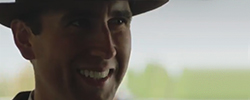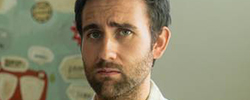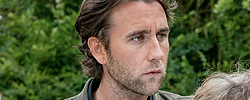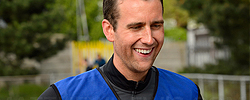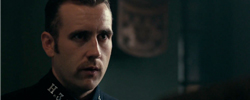Ideas Tap – Feb 27
Matthew Lewis on child stars
Actor Matthew Lewis played Neville Longbottom in the Harry Potter films, and has since worked in theatre and TV. He shares his tips for working with kids on set, getting the most of out of your agent and knowing when to go to the director for help…
How have you changed since your child acting days?
Between Harry Potter two and three I just grew up – got significantly taller and slimmed out. I had to wear a fat suit and false teeth to make me look more Neville-like. When I finished the last film and went to the premier without a fat suit on, people were surprised.
What were you most looking forward to doing when you finished Harry Potter?
What I really wanted to do was get another job. That was my main concern. When you’ve done a film series like that you have to be philosophical: I’m not expecting to do anything as big as that ever again. I just want to be working.
In the beginning, when I was going to meetings, I felt that I had to first convince them that I wasn’t Neville Longbottom before I could convince them I was somebody else. But I think a lot of that was more in my own mind than anything else.
What can you do to get the most out of your relationship with your agent?
You need to show them that you’re proactive in your career. If you are a bit half-hearted about an audition and not over-enamored of a part, you need to tell them. There shouldn’t be any secrets around these sorts of things. If you go into a meeting for something that you don’t really want, but you think, I best go in for it anyway, and then it turns out you didn’t prepare and did a shit audition, that’s going to get back to your agent. You need to have a trusting relationship and everything has to be very open about where you want to be and what you want to do.
What do you do to prepare for auditions?
There’s so much out there that I’ve found helpful – books written by casting directors, guidelines for auditions, books on Stanislavski technique. As soon as I get my script, I put my phone on silent and I sit and read through it and really try to immerse myself in it.
You can’t over-emphasis the importance of preparation. If you’re doing an accent, speak in that accent up until the moment you go in. If I’m going into a room to do a scene I want to know that scene back to front: what everyone’s motivation is and just know the scene completely – not just the lines.
Tell me about making the move from screen to stage
When I finished Harry Potter, the first thing I did was a tour of a play. I’d never done theatre before and I was just shit. It was a whole different school of acting that I just wasn’t prepared for. I spent six months on this tour, and for the first few was thoroughly miserable.
I didn’t even realise there was a problem at first. Then I was reading the paper one day in some local town and there was a review. It was scathing. I thought I’d best read the one in the next town, and thought, “Bloody hell, I’m doing something wrong here.” I started to ask questions.
How did you go about improving your performance?
I asked the director for help. He gave me a few techniques to use to keep the energy up in scenes, and at the end of each line. He gave me some tennis balls and every time I finished a line I’d have to go up at the end and throw the tennis ball to him. Then he’d do the same back to me. It seems naff, but once you do it a few times you start to get that rhythm and can bring that into your performance.
What advice would you give adult actors for working with child actors?
I just remember how terrifying it was, working as a kid. I was so nervous around the older actors and thought, “Oh, are they going to be judging everything that I’m doing? Do they think I’m crap and is that why he’s not talking to me?” And that’s not true at all – it’s just that they are obviously engrossed in their own performances.
One thing I’ve always tried to do, working with kids since then, is talk to them and make them feel as comfortable as possible. Sometimes young people on a film set can feel excluded. You’re expecting these people to work like adults and be as professional and mature as adults so you’ve got to involve them.
Michael Gambon used to tell some really naughty jokes, when I was a kid. He wouldn’t tell them to us, but he’d be telling them to someone else and you’d overhear. I don’t think the parents liked it very much but for us that made him seem so much more human and more approachable. That made me more relaxed.

